Dying Light 2 nails the first-person parkour and combat, but its ambitious story may be a dud
Our first hands-on was a good time, except for when Dying Light 2 rolled out the Walking Dead melodrama.
The best decision I made in four hours with Dying Light 2 was helping a guy electrocute a goat. It wasn't quite what he was going for—this wannabe inventor was trying to create an electric fence and accidentally ended up barbecuing the town goat he hoped to keep safe. But it worked out for me, because I unlocked a weapon mod that let me add stunning electrical damage to my medieval mace. I pulled that mace out for every tough fight over the next two hours and absolutely decimated bosses and the strongest zombies I came across.
Dying Light 2 is a good time. It's been a long time coming: the first Dying Light came out in 2015, and this one was originally meant to be finished in 2020. From what I've played, there's still a lot of polishing left to do, but the action and parkour that defined Dying Light are both here, and both nice and weighty. I left convinced that I could play through Dying Light 2's whole campaign without tiring of smashing in zombie brains or taking running leaps between rooftops.
Every conversation I had was overwrought and amusingly melodramatic
I can't say the same for Dying Light 2's story, unfortunately. Despite an ambitious promise to make your decisions impact the path you take through Dying Light 2 and how the world changes around you, the writing and acting for those story beats feel like they belong to a game from a half decade ago that hasn't aged particularly well.
Dialogue in Dying Light 2 gave me flashbacks to watching the early seasons of The Walking Dead—I think I made it most of the way through the second season of that show before I couldn't stand the absolutely contrived decisions characters made to justify that week's drama. If you've watched or read or played any piece of post-apocalyptic media, you're probably already well familiar with the tropes Dying Light 2 is going to trot out. You play a guy named Aiden (immediate red flag if you played Watch Dogs) who's on a search for his missing sister (I'm sure that won't end tragically, right?) and along the way you run into survivors who aren't just good or bad, you know, but morally gray. We're talking at least several shades, here.
Everyone's morally gray, even the sneeringly evil characters, because that's just what it's like to be a survivor a couple decades after the zombie apocalypse. Dying Light 2 wants you to choose who to side with and who to help and who to double-cross constantly, which only really works if you're stuck in the middle of a whole bunch of conflicting interests.
There are at least some cool outcomes from these moments. If you sway an area's allegiance towards the civilians or the militaristic peacekeepers, for instance, it changes the "alignment" of the world. The peacekeepers will build traps you can use to kill zombies, while the survivors add parkour aids.
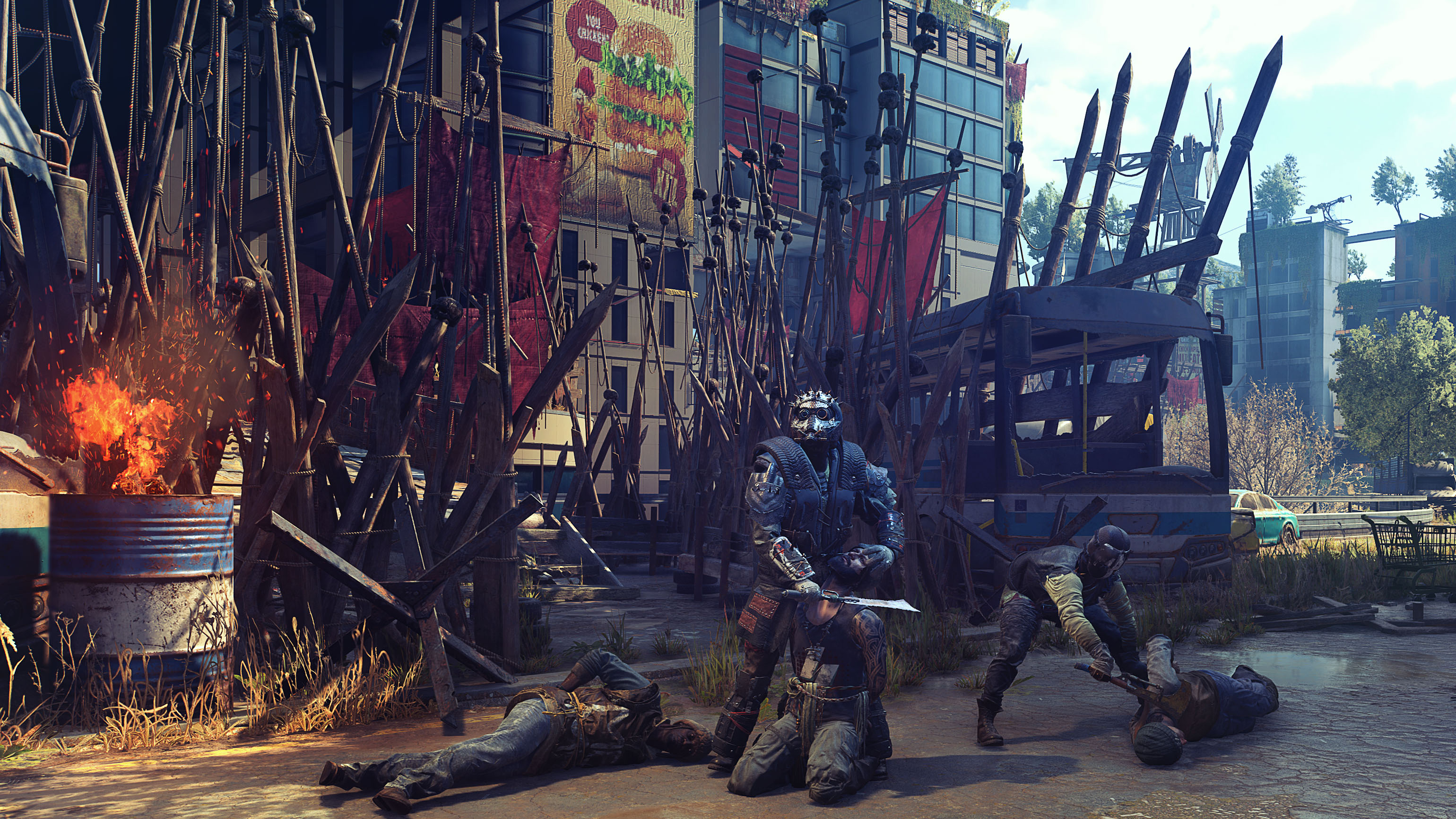
It's possible those choices add up to something bigger, and they certainly can affect who lives and dies as the results of some quests. In the few hours I played I really only got to see one area of Dying Light 2's massive city, and thus only a small part of its overarching story, so it's possible there's some genuinely compelling character stuff later on. But I doubt it—every conversation I had was overwrought and amusingly melodramatic, and my decisions often led to jarring changes in the tone of a conversation. At one point I swear I was trying to convince someone we needed to stick together and help each other, and two lines later they were trying to convince me that we should work together. O...kay?
Keep up to date with the most important stories and the best deals, as picked by the PC Gamer team.
Dying Light 2 has the structure to feel like a proper RPG, but with none of the storytelling chops of a game like The Witcher 3, which managed to make morally ambiguous characters nuanced instead of tropey caricatures.
I don't think this is really a dealbreaker in Dying Light 2's case, though. The branching storylines may be its biggest ambition, but most of us are going to be playing to parkour across the city and bash zombies in co-op, and both of those are things Dying Light 2 is more than capable of.
Hit and run
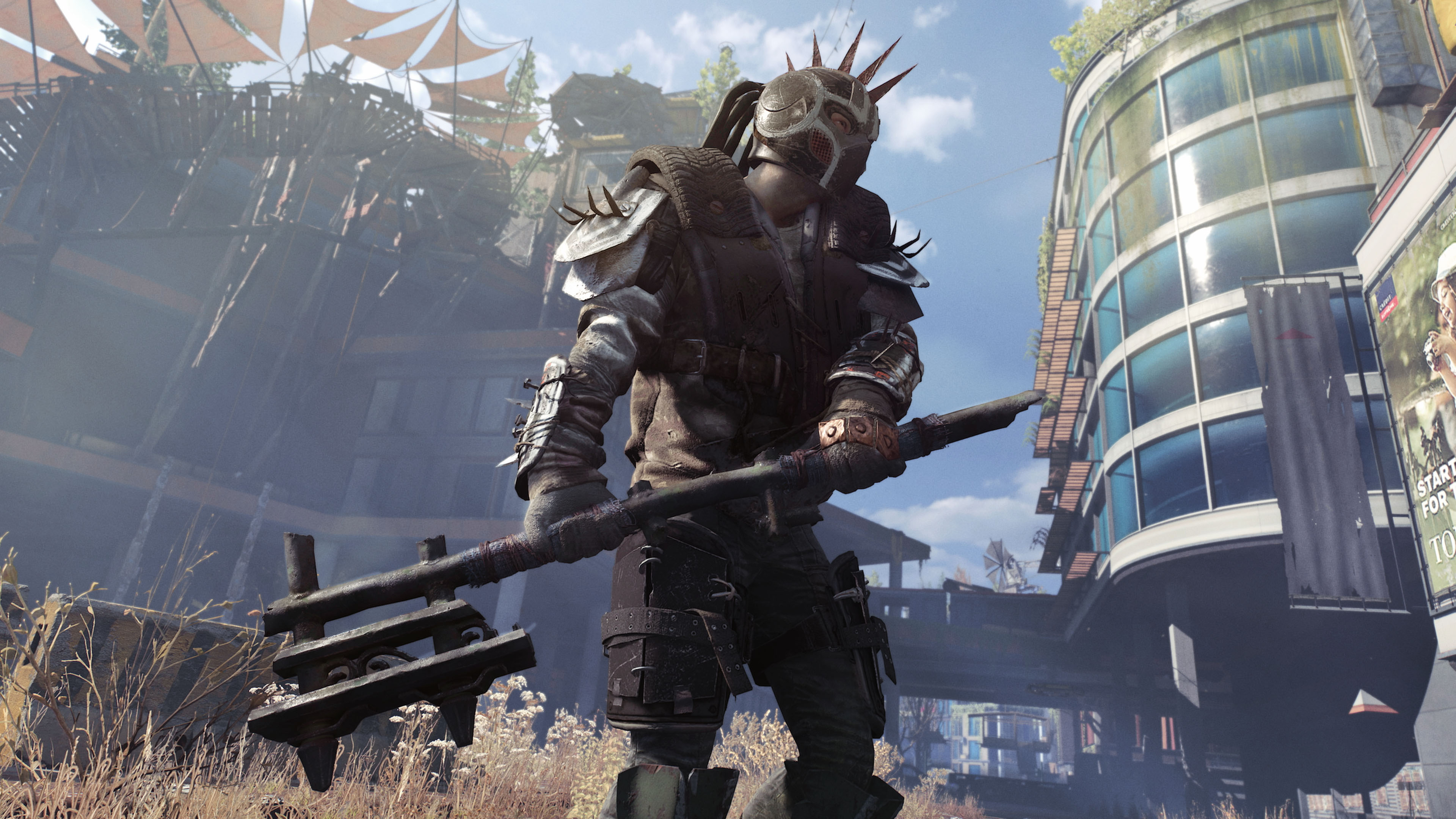
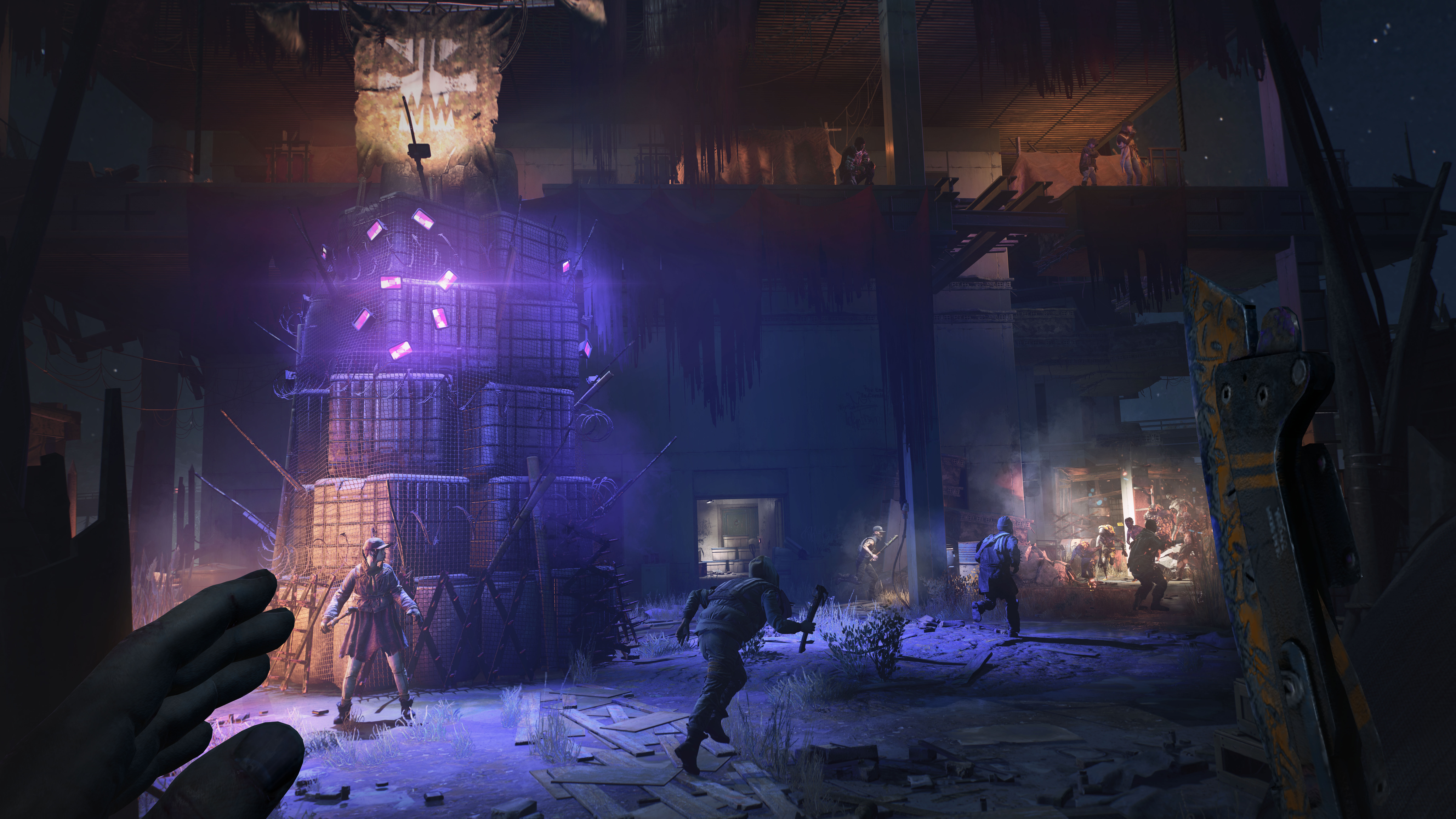
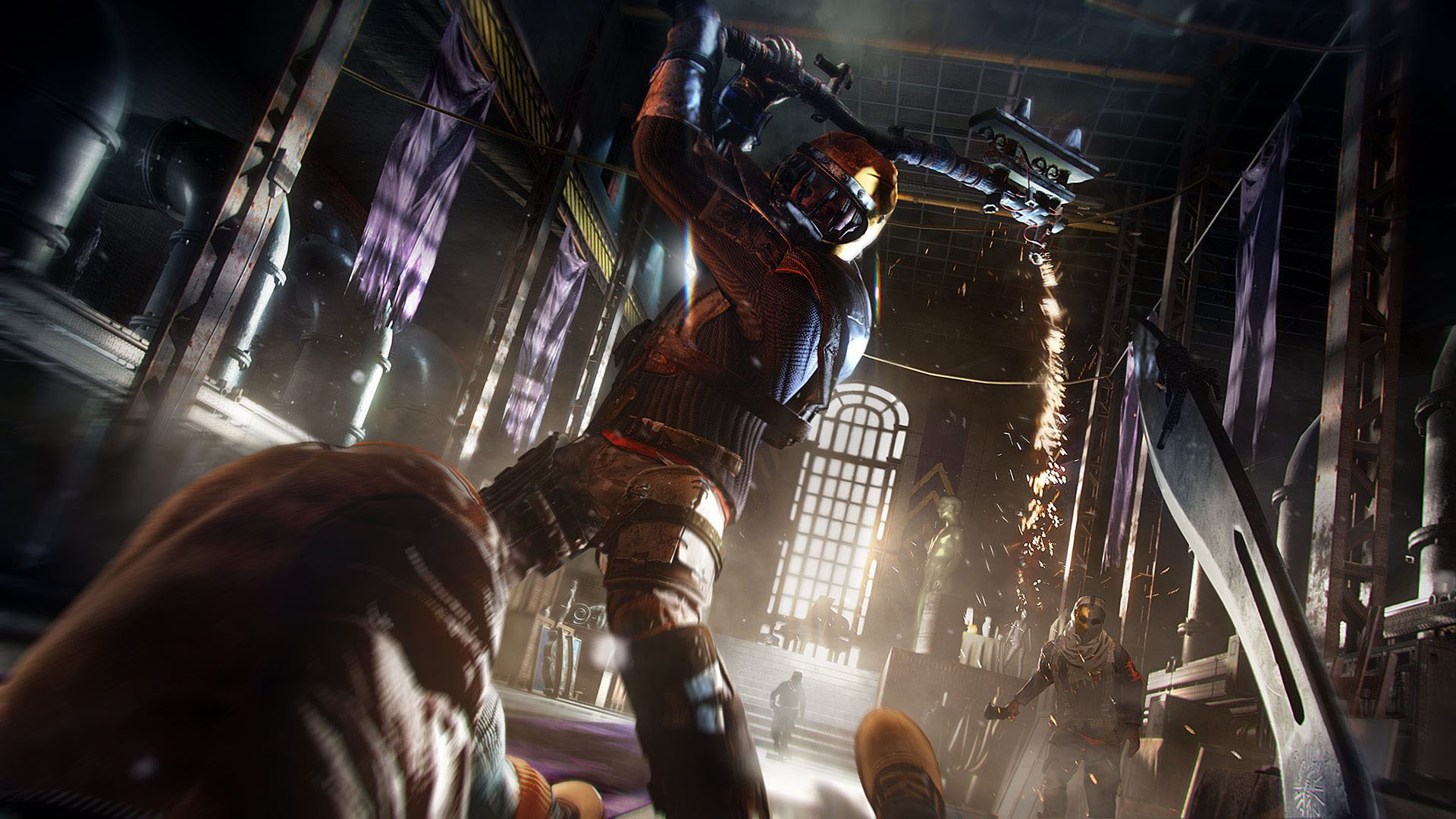
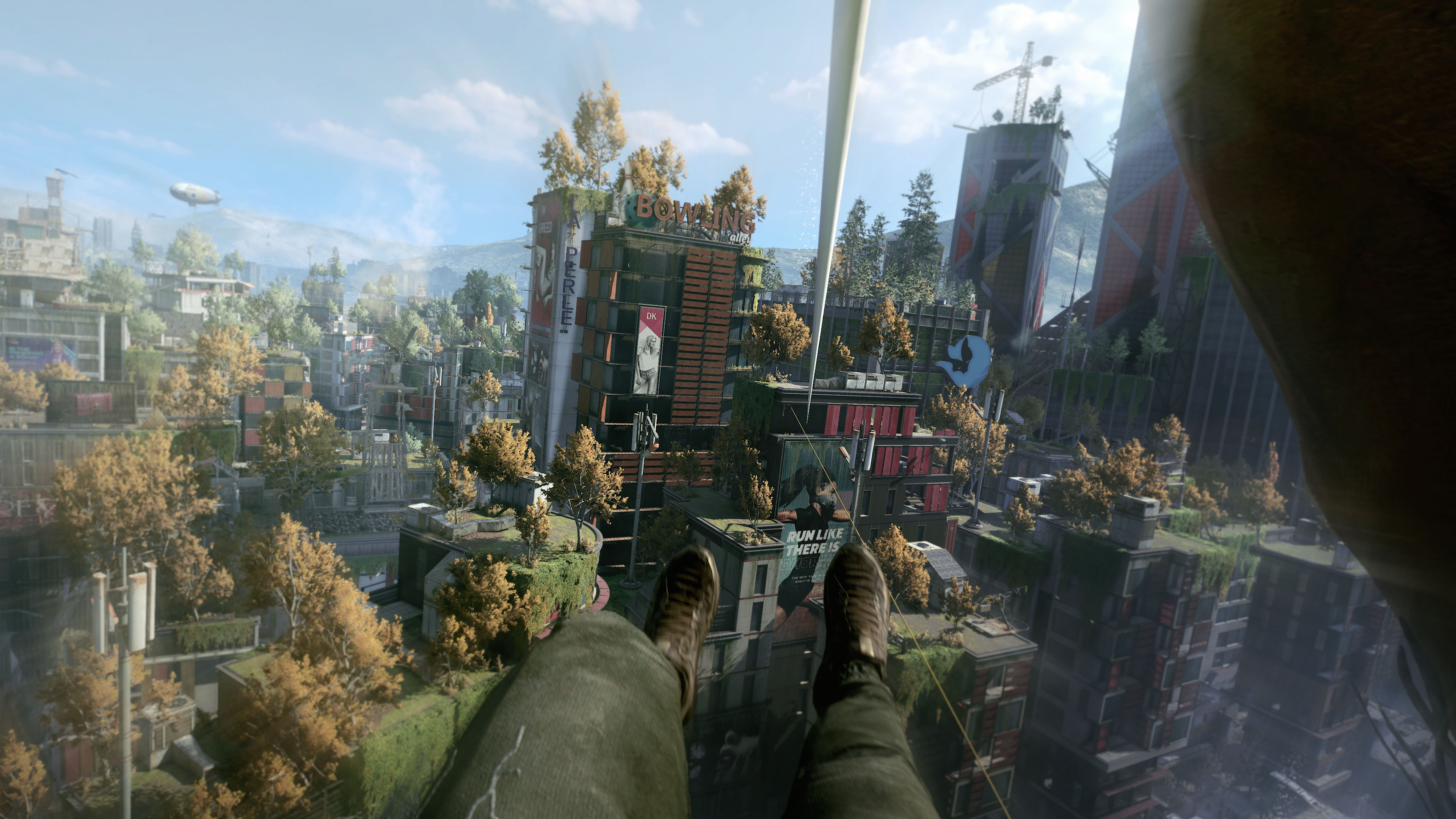
Here's another bold decision on Dying Light 2's part: there are no guns, period. This is a game all about weighty, pipes-cracking-skulls melee combat, and firearms have no place in it (I guess humanity used up all the bullets between DL1 and DL2). Even from the short stretch of the game I played, weapon variety was a highlight: the different melee weapons I used each felt pretty distinct when I made contact with zombies, from the speedier slice of a machete to the really heavy thwonk of a lead pipe.
I played my demo on a controller, where smacking zombie heads with a quick strike or by holding down a button to deliver a power blow felt really good. At one point I went to town on a crowd of zombies with a police baton that briefly made me feel like I was reenacting The Raid, though I don't want to oversell it—the sound effect was bang on, even if I wasn't pulling off 15-hit combos. First-person melee combat here is satisfying in the same way it is in Warhammer: Vermintide 2, one of my favorite co-op games of the last few years.
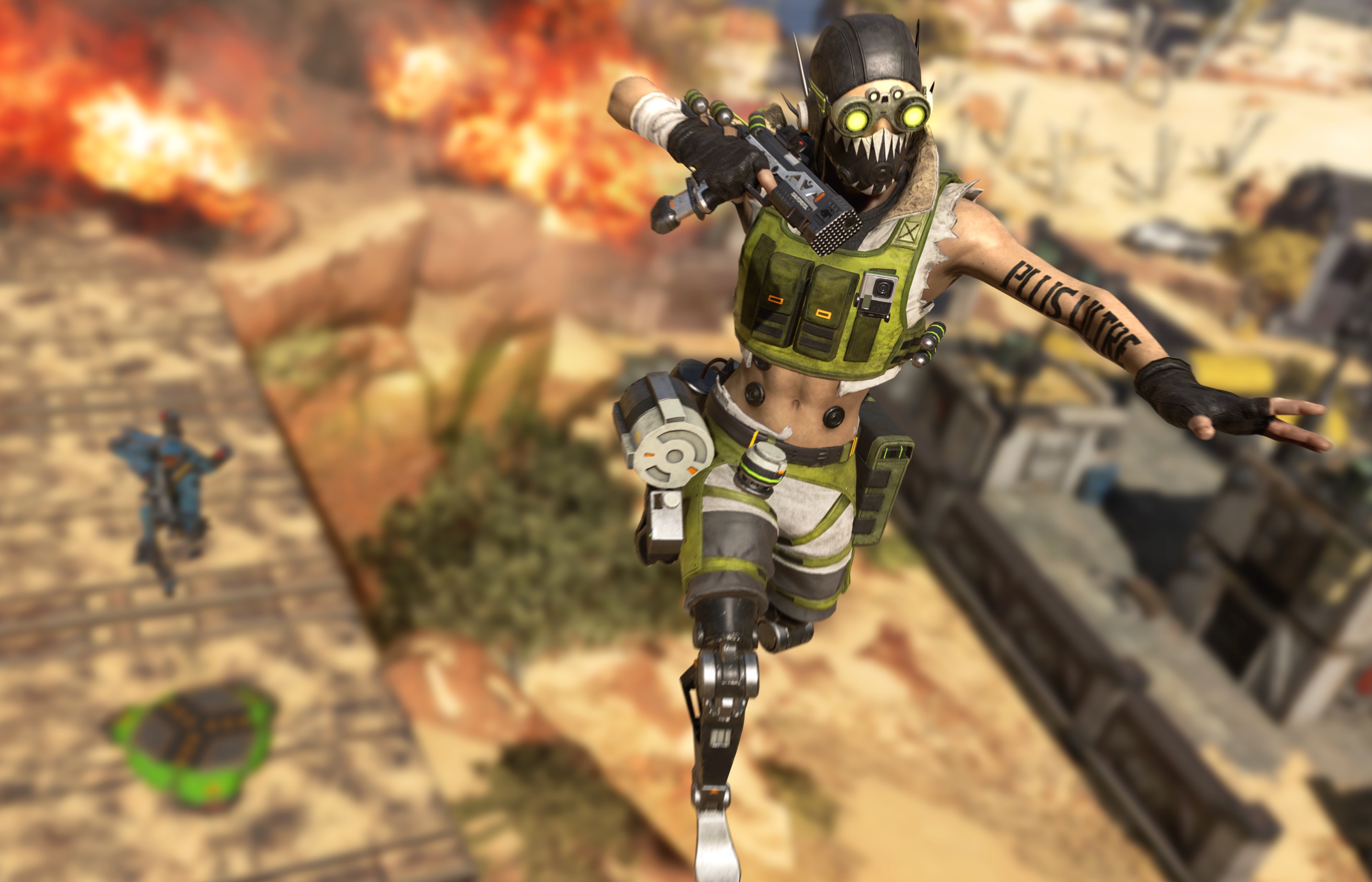
Best FPS games
Best racing games
Best battle royale games
Best beat-em-ups
Best horror games
I didn't get to play Dying Light 2 in co-op, but I think both games work as great co-op hangout experiences largely because you don't have to be too focused in combat to enjoy wailing on enemies. It's definitely not braindead though: when I went up against larger hordes of zombies or big brute minibosses, I had to stay on my toes with blocks and especially dodging, since you can't block more powerful strikes.
Dodging feels a bit unintuitive in first person, but positioning really matters if you're going up against tougher enemies or hordes of small fry. You can get yourself killed quickly if you don't carefully kite around the zombies running at you, use kicks to buy yourself breathing room, and manage your stamina.
There's still a crafting system here for enhancing weapons, though I only managed to unlock the one weapon mod that turned my mace into an OP brain zapper. There was a whole skill tree that Techland says it's not quite ready to show off, but expect a lot of abilities to make you more powerful in both combat and parkour. From the start you're already fairly maneuverable, but you'll be able to unlock abilities to run faster and jump further, fall from greater heights, and chain moves together more fluidly.
I didn't play much of the original Dying Light, but I did play the heck out of Dead Island, and I'm happy to say that running, jumping and climbing around the world is still a really satisfying way to get from one place to another. That basic experience is something that way too many open world games fail to deliver. So many of them are full of empty space that mostly serves to pad out exploration, but without much to really do within that space. I'm not saying Elden Ring needs parkour, but, I mean, maybe it does?
I was far from invested in Dying Light 2's story or the survivors I met, but that didn't really matter. I was content finding paths across roofs and along ledges. It's still thrilling to make those big leaps across large gaps and feel the thud when you hit the ground. Dying Light 2's developers told me they did a lot of work to refine the parkour system for this game, and overall I really liked the feel of it, which isn't easy to pull off in first person.
Hey, look at that: there's a paraglider now!
Parkour was never nauseating and I rarely found myself frustrated with the controls not doing what I expected, though it wasn't always super clear why I couldn't climb something—readability could be a bit better, considering in the post-apocalypse most of the world looks similarly beat up and run down. There's the occasional bit of awkward animation, but I actually liked that the parkour here feels a bit more physical and uncertain than the super smooth, streamlined movement of something like Assassin's Creed.
I probably spent almost as much time sneaking around as I did parkouring. As in the original Dying Light, Dying Light 2's action changes significantly between night and day. Going into buildings during the day puts you at risk of being overwhelmed by hordes while the streets are relatively quiet, but at night all the zombies start chasing you around outside and become much more threatening. I had one mission where I was told I should wait until night to enter a building in search of some military gear, but I just went for it during the day anyway. It was tough, but I appreciated that I was able to make that choice.
There's a whole lot going on in Dying Light 2 beyond running around and cracking skulls. The stealth system, for example, has items you can throw to decoy enemies. If you stay in the dark too long you'll become infected, but you can find and craft items to inoculate yourself and there are UV lights throughout the world that reset your immunity. It adds an extra bit of tension to how and when you choose to fight or run. And there are climbing challenges, basically like towers in Assassin's Creed, that unlock new safe rest spots around the world.
The freedom to play quiet or loud and to climb up practically any building you want pairs well with the non-melee weapons in Dying Light 2. There are no guns, but there are bows and crossbows, and I had some real Far Cry vibes when I invaded a bandit camp and silently sniped the leader from a high perch I'd parkoured my way up to. The open-endedness is great.
Dying Light 2 feels like a properly huge sandbox, with all the goodness and baggage that entails in open world games. You're going to spend a lot of time hunting down crafting materials and looking at pieces of equipment with +5% crit chance and +19% damage at night, which will usually be dull but every so often results in a weapon that feels memorable. In games like Borderlands, I find a lot of generic open world tasks and repetitive loot much easier to forgive in co-op, which is where I think Dying Light 2's going to really shine. I'm not expecting much from its story after my first few hours with it, but if the co-op zombie bashing is good, that's what really matters.

Wes has been covering games and hardware for more than 10 years, first at tech sites like The Wirecutter and Tested before joining the PC Gamer team in 2014. Wes plays a little bit of everything, but he'll always jump at the chance to cover emulation and Japanese games.
When he's not obsessively optimizing and re-optimizing a tangle of conveyor belts in Satisfactory (it's really becoming a problem), he's probably playing a 20-year-old Final Fantasy or some opaque ASCII roguelike. With a focus on writing and editing features, he seeks out personal stories and in-depth histories from the corners of PC gaming and its niche communities. 50% pizza by volume (deep dish, to be specific).

